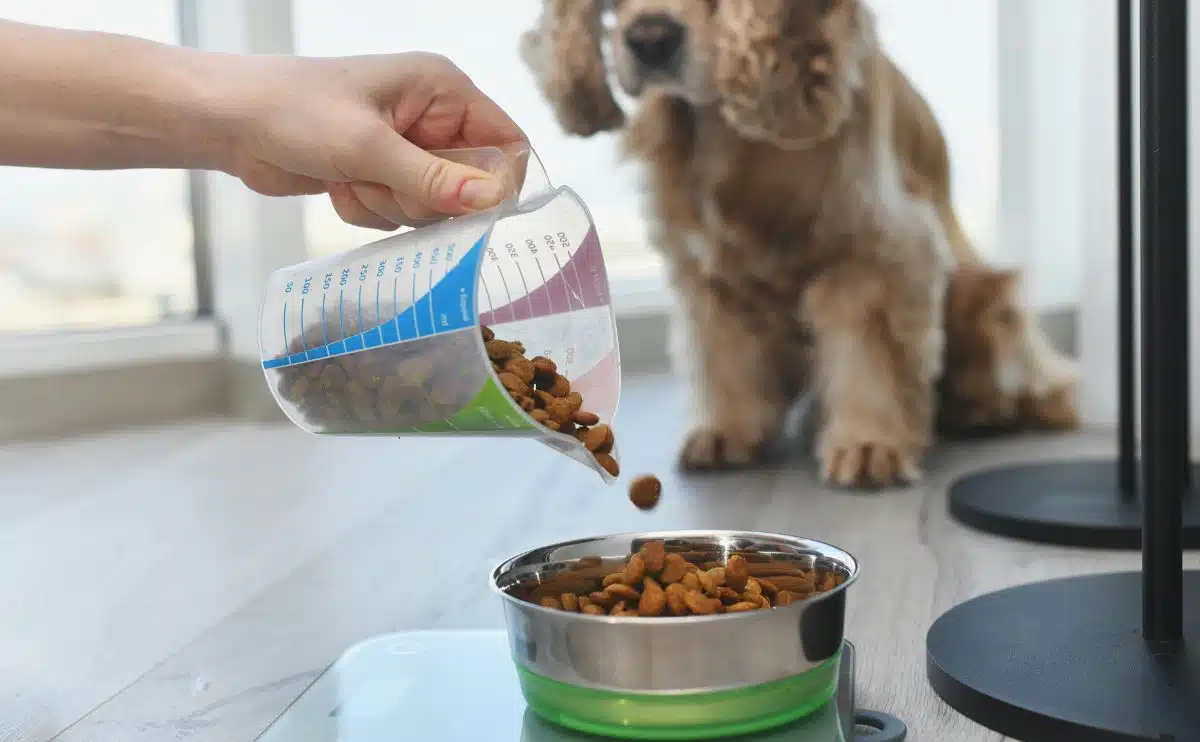As is true for humans, making sure your dog receives enough dry food is vital to his or her overall wellbeing. Like humans, dogs require a well-rounded diet in order to support their weight, energy levels and general wellbeing – however identifying an ideal portion size can be daunting as this depends on factors like their age, size, activity levels and special dietary requirements – this article will walk through how to calculate daily dry dog food portions to provide your pup with optimal nutrition!
Unlocking the Unique Needs of Your Dog
Before delving into the specifics of portion calculation, it’s essential to recognise that each dog is unique. What works for one dog may only be suitable for another. Factors that influence your dog’s dietary requirements include:
Age:
Puppies, adults, and senior dogs exhibit distinct nutritional requirements. Puppies demand increased calories and nutrients to facilitate growth, whereas senior dogs may have diminished calorie needs.
Size:
Small breeds, characterised by higher metabolisms, may necessitate more calories per pound of body weight in comparison to their larger counterparts.
Activity Level:
Active dogs, such as working breeds or those with high exercise requirements, need more calories than sedentary dogs.
Health Conditions:
Dogs with certain health conditions, like diabetes or obesity, may have specific dietary restrictions and portion guidelines provided by their veterinarian.
Calculating Your Dog’s Daily Dry Food Portions:
Here’s how to calculate the daily dry food portions for your dog, keeping in mind their individual needs.
Consult the Dog Food Label:
Start by reading the label on your dog’s dry food packaging. Most reputable dog food brands provide feeding guidelines on the packaging, which offer a rough estimate of how much to feed based on your dog’s weight. These guidelines often include a range of portions depending on your dog’s size and activity level.
Determine Your Dog’s Ideal Weight:
If you need further clarification of your dog’s current weight, determining their ideal weight can provide invaluable clarity. A veterinarian will assist in this endeavour and this information is critical when portion calculating to achieve or maintain their ideal weight goal.
Calculate the Calories:
To help determine your pet’s daily caloric requirements, follow this formula: Calories per Day = Weight in pounds multiplied by 30-40 Calories for Each Daily Activity Period
This formula gives a rough estimation of an adult dog’s daily caloric needs; however, keep in mind this should only serve as an initial starting point and individual variations exist.
Adjust Based on Activity Level:
Consider your dog’s activity level when providing nutritional recommendations based on activity level; highly active canines may need increased daily calorie consumption while less energetic pups might require reduced calories per day. Check their food label or with your veterinarian for guidance based on activity.
Divide Into Meals:
Once you’ve calculated the daily calorie needs for your pet, divide this total between two or three meals to help manage blood sugar levels and prevent overeating. This also prevents their weight from skyrocketing when given all their meals at once!
Monitor Your Dog’s Weight:
After determining the initial portion size based on the calculations above, it’s crucial to monitor your dog’s weight regularly. If your dog starts to gain or lose weight, adjust their portion size accordingly. Ask your vet for advice about the correct adjustments.
Conclusion
Calculating your dog’s daily dry dog food portions is a crucial step in providing them with the nutrition they need for a healthy and happy life. Remember that individual factors play a significant role in determining the right portion size. Track and consult with your veterinarian regularly regarding your dog’s weight, to provide personalized guidance on its diet needs. With careful attention paid to meeting their particular nutritional requirements, you can help guarantee they receive optimal nourishment.
